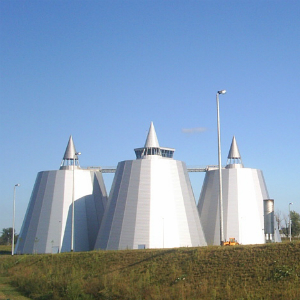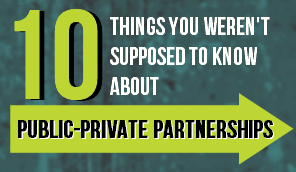The Zagreb wastewater plant public-private partnership (PPP), financed by the European Bank for Reconstruction and Development (EBRD), has for years been highlighted by Bankwatch and its member group Zelena akcija/Friends of the Earth Croatia as a harmful project allowing the private sector enormous profits at the expense of the City of Zagreb and the public.
Pippa Gallop, Research coordinator | 29 March 2016

As yet no-one has been charged in connection with the main harm done by the Zagreb wastewater plant: excessive profit for the concessionaire at the expense of the public.
The Zagreb wastewater plant public-private partnership (PPP), financed by the European Bank for Reconstruction and Development (EBRD), has for years been highlighted by Bankwatch and its member group Zelena akcija/Friends of the Earth Croatia as a harmful project allowing the private sector enormous profits at the expense of the City of Zagreb and the public.
Now finally the Croatian public prosecutor has begun to catch up. Last week, anti-corruption agency USKOK arrested and began an investigation against six people and one company suspected of criminal activities connected to this project. The cases involve alleged bribery for works contracts and payment for works that were never carried out.
The arrests are a positive step forward in uncovering what is behind various untransparent deals connected with the wastewater plant, however as yet no-one has been charged in connection with the main harm done by this project: excessive profit for the concessionaire at the expense of the public.
The concessionaire, Zagrebacke Otpadne Vode (ZOV), constructed and operates the plant, and receives a fee from the city for doing so. According to the state auditor, between April 2004 and the end of 2006 the City of Zagreb had already paid ZOV 75.5 percent of the basic fixed costs of the plant’s construction. This raises the question of why a PPP was needed at all if the city had enough money to pay off the construction cost so quickly. It also suggests that the concessionaire is making massive profits on the project, as the monthly payments will continue until 2028.
Exposing the myth
Public-private partnerships are not a silver bullet for public infrastructure. Our website Overpriced and underwritten exposes the hidden costs of PPPs.
The cost of the project also rose from EUR 176 million to EUR 326.7 million without any convincing explanation, and the plant is designed for 1.5 million inhabitants even though Zagreb only has around 800 000. An expert commission proposing a cheaper solution was dismissed without taking its concerns into account.
In spite of clear deficiencies with the project, in 2001 the EBRD approved a EUR 55 million loan for the project, with a further EUR 115 loan from the German Kreditanstalt für Wiederaufbau (KfW ).
Even with the high costs involved, the technical solution used does not result in fully stabilised sewerage sludge – a fact used by the city authorities as an excuse for their unpopular plan to build a waste incinerator to burn both the sludge and Zagreb’s largely unsorted communal waste. For the last ten years the city has – thankfully – failed to build the oversized facility, but it has used it as an excuse not to do almost anything else to improve waste management.
Let’s hope this arrest is just the first instalment by the Croatian public prosecutor and that further investigations will look into the role of former Zagreb Mayor Marina Matulović Dropulić and current Mayor Milan Bandić in signing the massively harmful contract for the wastewater plant.
Never miss an update
We expose the risks of international public finance and bring critical updates from the ground – straight to your inbox.
Institution: EBRD
Theme: Social & economic impacts
Location: Croatia
Tags: CUPOVZ | Marina Matulović Dropulić | Milan Bandic | PPP | Zagreb | arrest | corruption | investigation | public-private partnerships | wastewater

